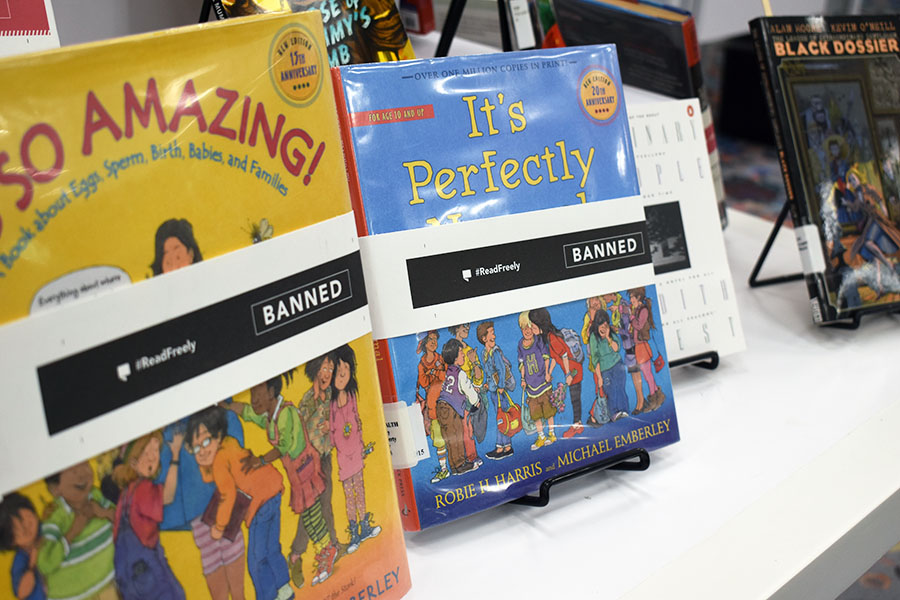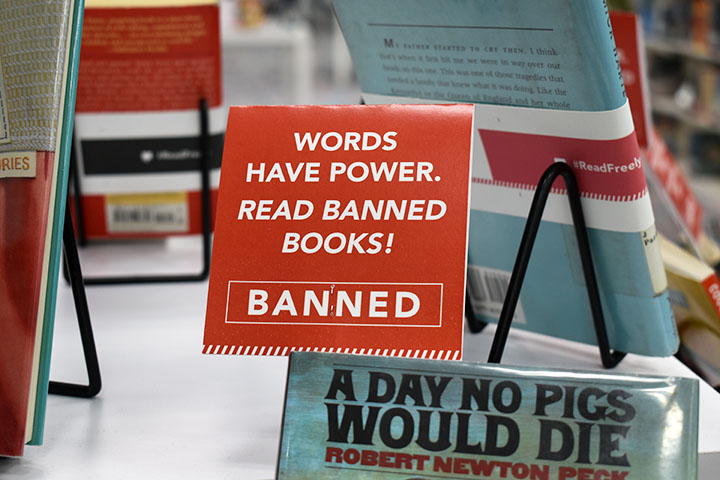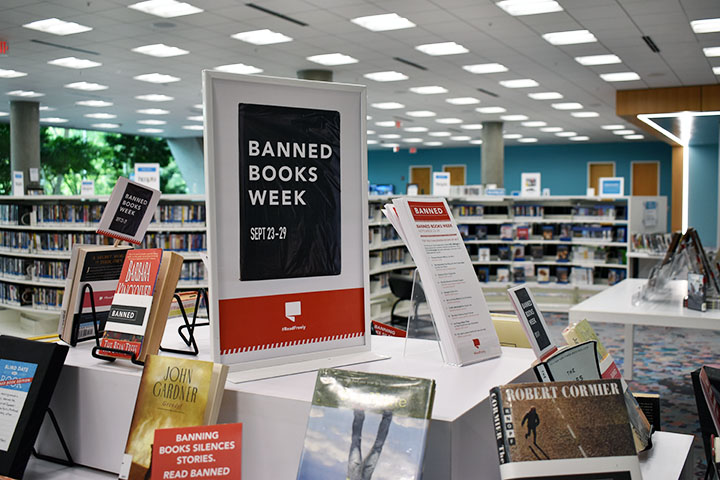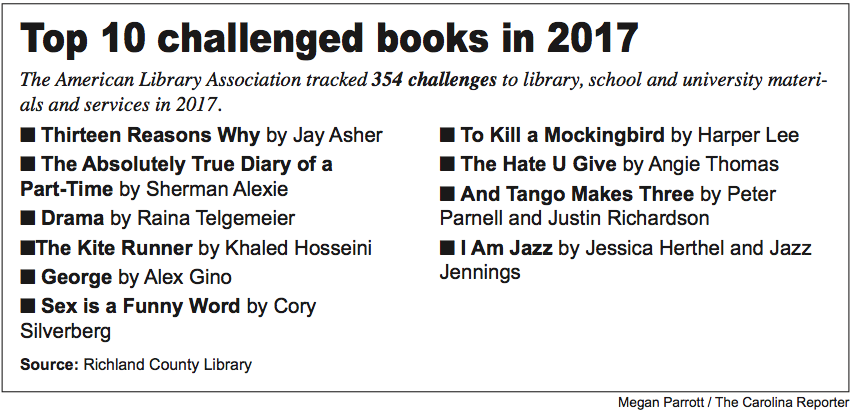There are many popular children’s books that have been banned over the years such as “Where the Wild Things Are” and several Dr. Seuss books.
This week at the Richland Library, you can find a table full of books on display that have been banned from readers in the United States at some time in the past.
Included in this collection are beloved titles such as the children’s book “Where the Wild Things Are,” whose characters cover the walls of the library’s children’s section, and “To Kill A Mocking Bird” a classic coming of age tale.
All across the nation, for countless years, books have been challenged or banned in an attempt to censor what people are reading. Every year in the month of September, Banned Books Week is dedicated to those books.
“What we’ve been doing is really trying to bring light to some of the books,” said Emily Stoll, community and media relations coordinator for Richland Library.
“The whole thing is we want to celebrate the right to read and we ultimately want to put it into the hands of the readers so they as parents can censor what their child reads,” Stoll said. “They can censor what they are reading themselves. It’s a personal decision and not a decision that we are pushing on people.”
In order for an individual to get a book banned they have to go through a process that is unique to each institution. Generally, there is a form that has to be filled out to file the complaint or challenge. That complaint will then be passed on to an executive committee within the library, or in the case of a school system, to a group that consists of teachers, the principle and the media specialist. The complaint will be reviewed by the committee to decide if it is under the guidelines for the institution.
Banned books are often those that readers think involve too much controversy, including topics such as racism, police brutality, and sexual issues. Thomas Maluck, a teen services librarian at Richland Library, thinks that more often than not, the reason behind book challenges comes from who is reading the books.
“It’s usually a lack of faith in young readers to parse the meaning of what they’re reading and to decide for themselves what these stories mean to them,” Maluck said. “So I think when you ban a book you are also banning the ability to process the information in that book.”
Sarah Moore, a parent perusing the children’s section of the library, has found that she can understand both sides of the story because of her children.
“I would say that I would like my child to be allowed to see any book,” Moore said. “But I do understand that there are potentially harming books and [school systems] have to be more aware than other places.”
A big question for those involved in Banned Books Week has been if the event is still relevant in today’s society. If a book has been challenged or banned, there is the belief that there’s always an opportunity to get the book through other means besides the library.
“As a public librarian, all the Richland Library staff, we’re very sensitive to the fact that the resources that we offer are often the only avenue that people have to access those resources,” said Maluck.
Maluck said that when someone tries to have a book removed they may believe they are doing the community a favor, but he believes that they’re also denying a reader the opportunity to interact with that book in perhaps the only place that they would be able to.
“It’s a very economically privileged stance,” Maluck said. “Some people can’t buy it and if it weren’t available to the library they might never know it existed in the first place.”
Video courtesy of the American Library Association
Emily Stoll, community and media relations coordinator for Richland Library, said that the library’s main goal during Banned Books Week is to promote everyone’s right to censor their own books.
Richland Library makes it a point to show their readers all the books that they have available, including books that have been banned elsewhere.
Throughout the building, library staff has put together displays on each floor that include popular books that have been banned or challenged across the U.S. in previous years.









